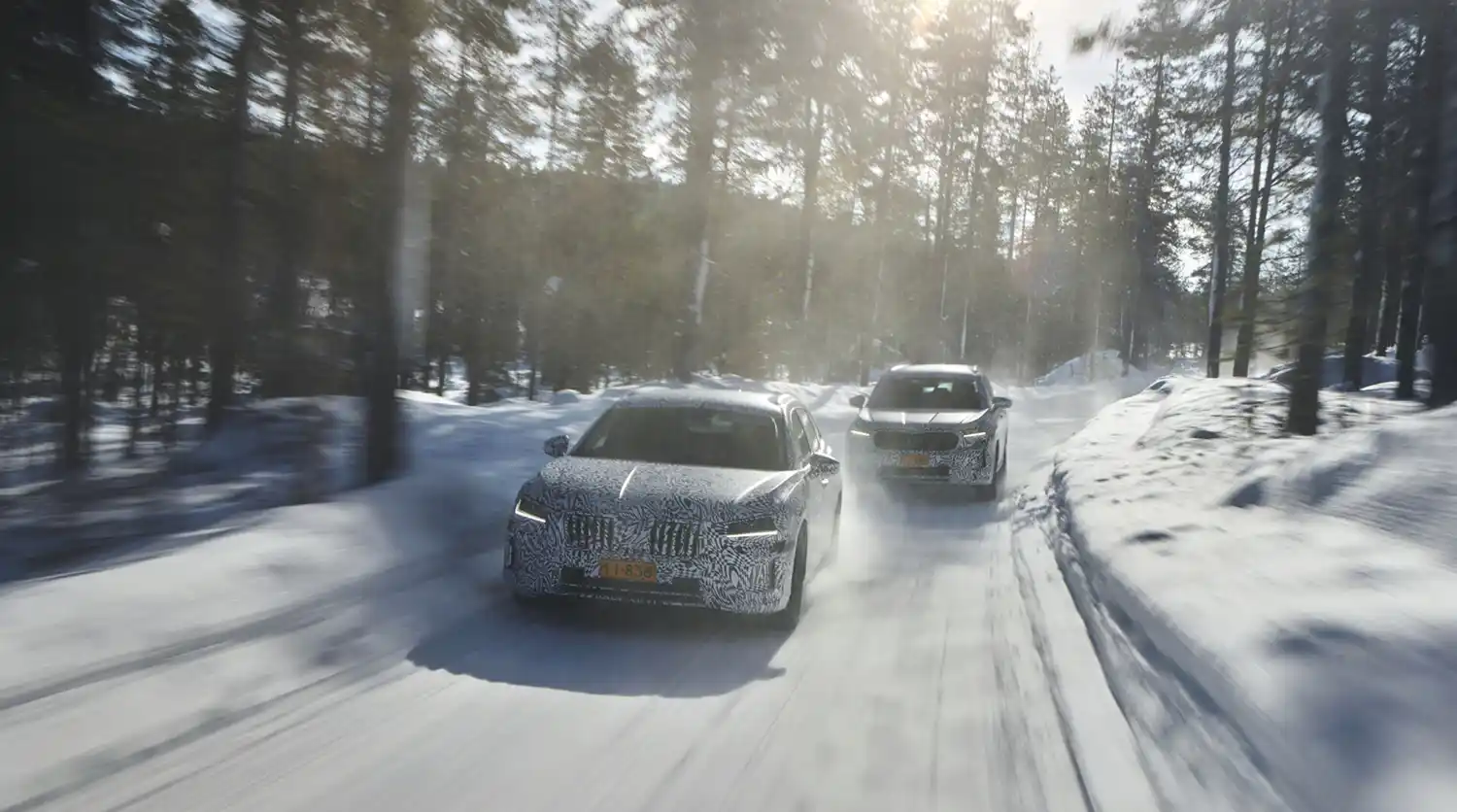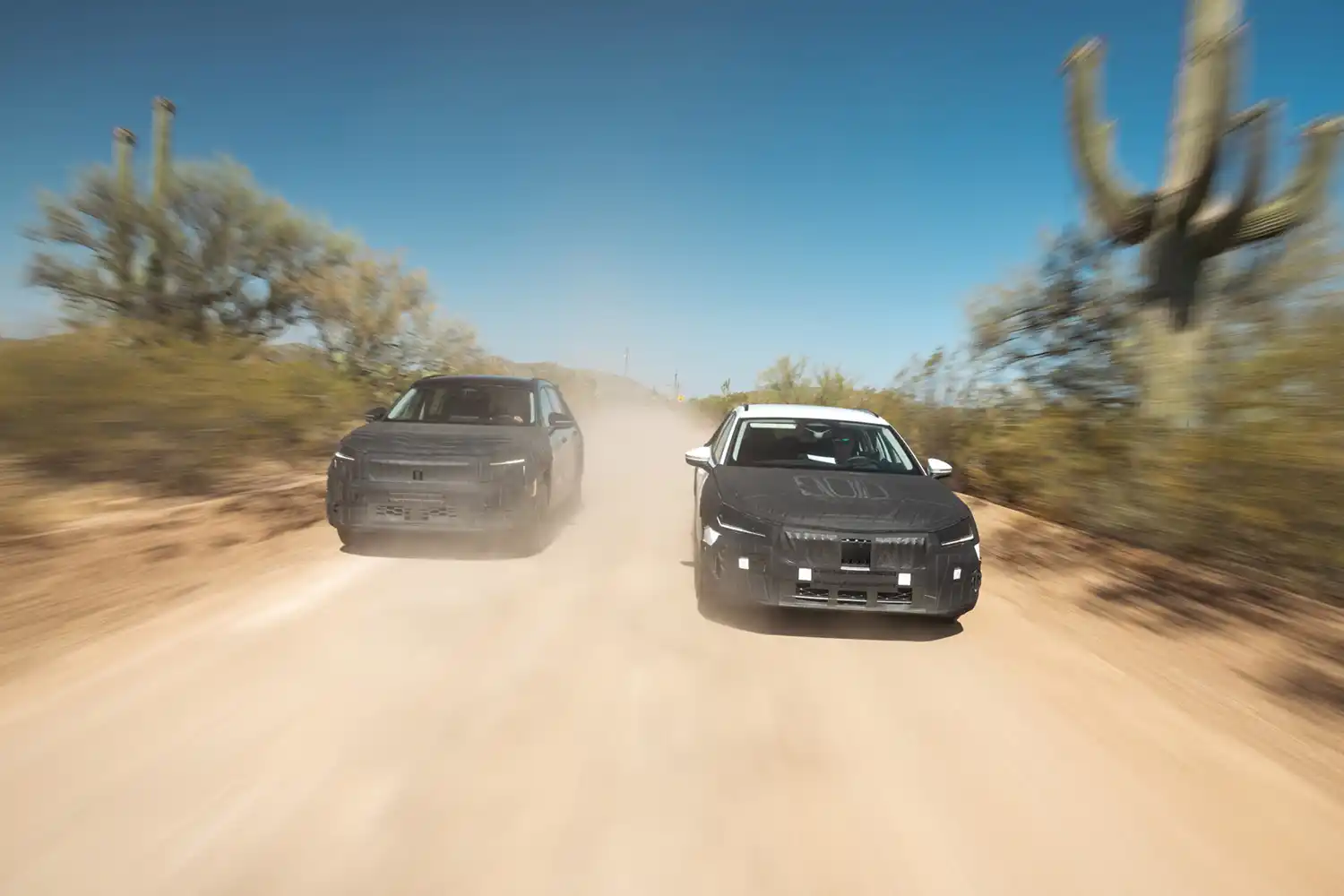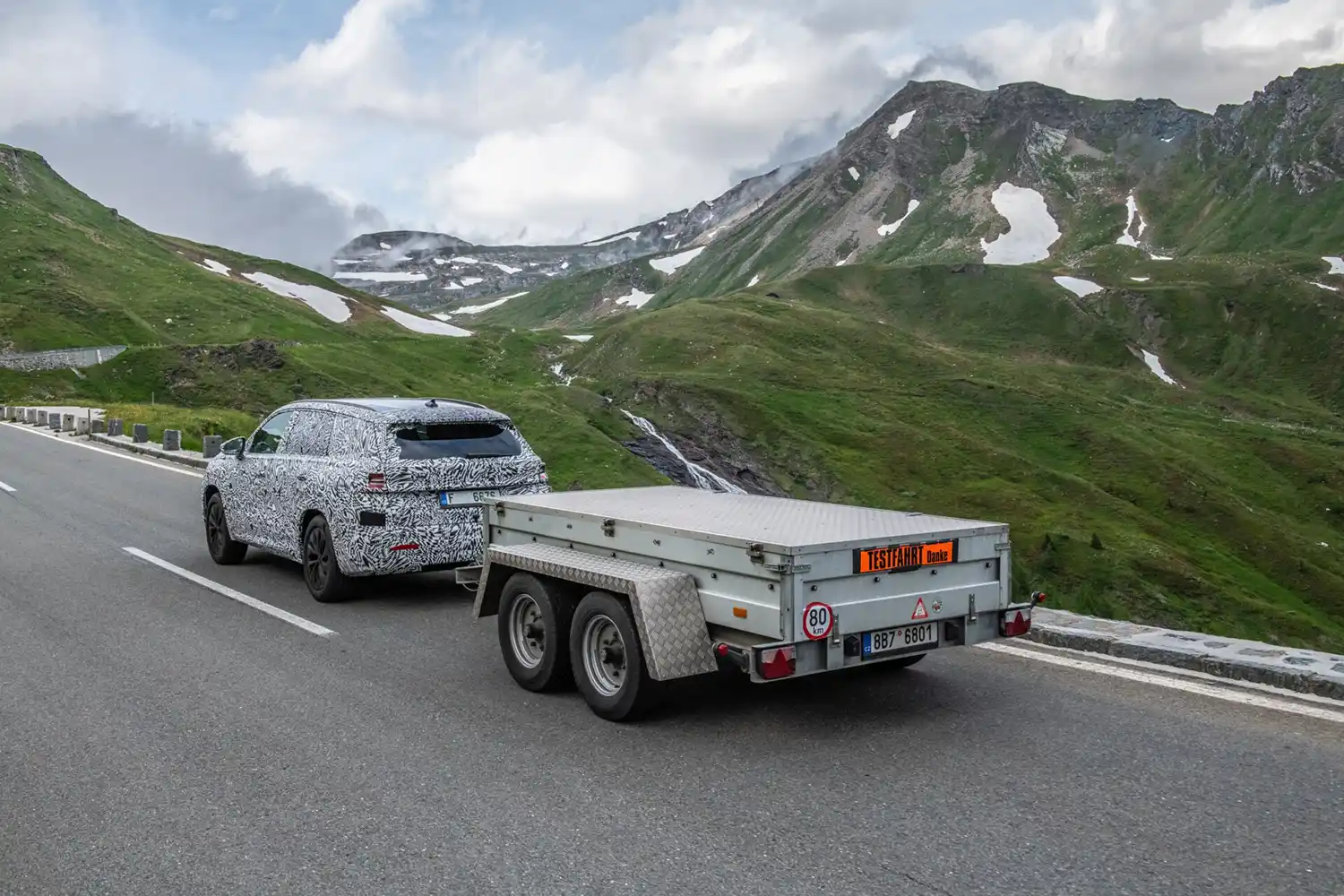
The new generations of Škoda’s Superb and Kodiaq model series have successfully completed an intensive international test programme. The Czech carmaker put both models through their paces ahead of their upcoming world premieres. Over a period of two years, they covered more than a million kilometres. The test drives exposed the cars to temperatures of -30 °C north of the Arctic Circle as well as almost 50 °C in the Arizona desert. Moreover, Škoda Auto had them towing trailers on the Grossglockner High Alpine Road and tested various charging infrastructures for the variants with plug-in-hybrid drivetrains. With numerous additional endurance and material assessments on test rigs and in the laboratory, Škoda simulates 40 years of real-world vehicle use prior to the model’s launch.
“We live by the words of our founders Laurin and Klement from 1895: Only the best is good enough for our customers. For that reason, we push our cars to the limit, simulating and testing everything our customers might face during their journeys. Our vehicles complete well over a million kilometres in urban traffic, on country roads and on motorways within a few months – a distance an average customer would need 40 years to cover.” Johannes Neft, Škoda Auto Board Member for Technical Development
“Before the start of series production, we assess all of the roughly 7,000 components. Our rigorous test programmes yield precise data on each part’s resilience, durability, and overall quality. From these extreme tests, we gain insights into factors like thermal endurance and even the durability of paints and finishes. We are committed to identifying and implementing any necessary adjustments.” Florian Weymar, Head of Škoda Auto Quality Assurance

Extensive tests to examine all components of a new model generation
While the first virtual tests for a new model start roughly four years before its debut, real-world drives begin around two years after. These sessions thoroughly examine the vehicle’s overall quality and durability – from its chassis and body to its powertrain and electrical systems, ensuring performance even under the harshest conditions. In addition, many individual components and entire assemblies, such as the new DCC Pro system and the new TOP LED Matrix headlights, are tested on special test rigs and in the laboratory.
Confronting the extremes: Arctic cold to desert heat
Ahead of their upcoming world premieres, the new generations of the Superb and Kodiaq endured tests under the most severe weather conditions. The vehicles were exposed to temperatures as low as -30 °C north of the Arctic Circle as well as tests in the searing heat of Spain, Africa and the Arizona desert at temperatures of up to 50 °C. The assessments also revealed details on the thermal behaviour of the new plug-in-hybrid drivetrain.
Additional focus areas: towing and charging evaluations
On the Grossglockner High Alpine Road in the Austrian Alps, the all-new Superb and Kodiaq successfully proved their worth as towing vehicles. These mountain road tests, with inclines reaching 13%, offered valuable insights into brake efficiency and thermal regulation. As both models series will be also available as PHEV versions with an electric range of over 100 kilometres, Škoda took the initiative to also assess varied charging options and infrastructure.
Having successfully completed the intense testing programme, both model series are now ready for their world premieres in the coming weeks. The new vehicle generations round off the upper end of Škoda’s comprehensive product portfolio that caters the diverse preferences its global customers.

